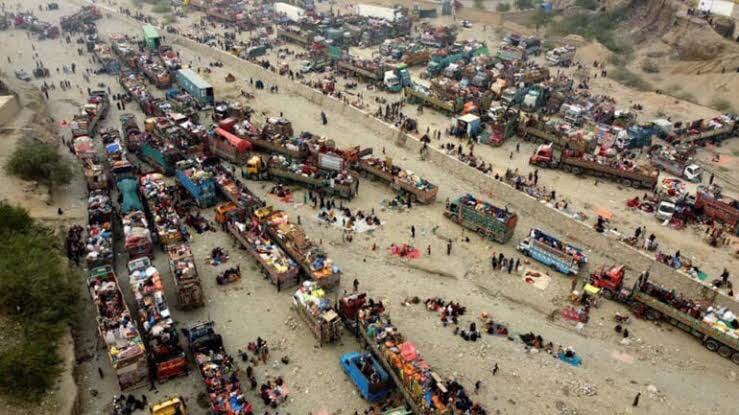
As Afghanistan sinks deeper into political darkness under Taliban rule, with systemic repression and the collapse of basic human rights, thousands of Afghan men and women have been forced to flee their country in search of safety and dignity. Many sought refuge in neighboring countries—especially Iran and Pakistan—hoping to find relative security, a chance to survive, and space to breathe freely. But those hopes quickly faded, as harsh immigration policies, widespread detentions, forced deportations, and official indifference turned the act of seeking asylum into a second, harsher exile.
In Pakistan, the ongoing wave of deportations against Afghan refugees—intensifying over the past two years—has targeted even those with a documented history of threats by the Taliban. Despite being fully aware of the grim realities in Afghanistan, Pakistani authorities have deported thousands without due process, legal representation, or documentation—often using force. Women have borne the brunt of these deportations: many fled Afghanistan for their involvement in civil protests, journalism, activism, or simply for being women. For them, deportation means being handed over to the possibility of imprisonment, torture, or silent death.
In Iran, despite decades of Afghan presence, refugees continue to face structural discrimination, police harassment, and unstable legal status. Deportations have surged in recent months. Thousands have been returned without individual case reviews, often denied the chance to defend themselves. Reports of child detentions, beatings, confiscation of property, and lack of access to medical care are widespread. In many cases, deportees held temporary residence permits or were awaiting decisions from international agencies.
Across both Iran and Pakistan, Afghan men have also been targeted: former security personnel, journalists, civil servants, and those who had worked with international agencies during the previous government in Afghanistan. Many have vanished after being deported. Families report losing all contact with their loved ones after forced returns, never learning their fate. This level of disregard for human dignity echoes some of the darkest periods in human history—periods we vowed never to repeat.
Meanwhile, in an era where much of Afghan civil resistance has moved online, the detention and deportation of digital activists amounts to silencing voices of dissent. For women activists, artists, journalists, and civil society members, digital platforms remain their only megaphone. But increasing surveillance, phone confiscations, and data tracking have turned these tools into threats. Taliban forces have used seized phones to identify and arrest other activists. Thus, even in exile, Afghan refugees find no safety.
Many Afghan refugees, especially those without legal documentation, are deprived of even the most basic human rights: shelter, healthcare, education for their children, and the right to legal employment. Host states, by institutionalizing these deprivations, have effectively erased them from public life. This structural exclusion has forced thousands into underground existences, living in constant fear of arrest and deportation.
Worst of all is the deafening silence of the international community in the face of this unfolding humanitarian disaster. Despite having full knowledge of Afghanistan’s human rights crisis and the precarious situation of its refugees, Western governments, international organizations, and even some human rights institutions have remained largely silent—or offered only symbolic, insufficient responses. Humanitarian aid is lacking, resettlement processes are excruciatingly slow, and only a tiny fraction of at-risk refugees have been relocated through legal channels. This inaction—especially regarding women who face direct persecution—amounts to indirect complicity in violence and oppression.
The mass deportation of Afghan refugees from Iran and Pakistan is not just a refugee crisis—it is a question for global moral reckoning. If the world cannot protect those who flee simply because they stood up against injustice, then the very principles of human rights, freedom, dignity, and justice are in jeopardy. This is not a moment for hesitation—it is a moment for urgent action: to save lives, to honor the right to asylum, and to defend the principles for which humanity has bled and struggled.



